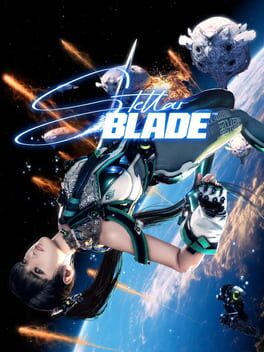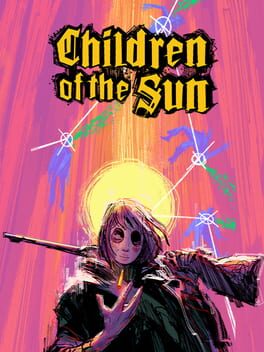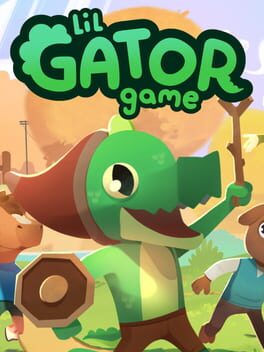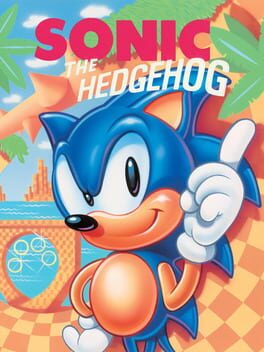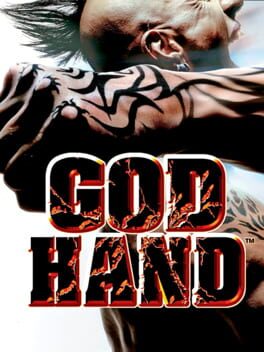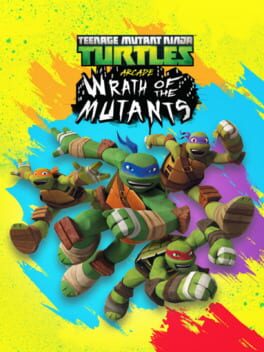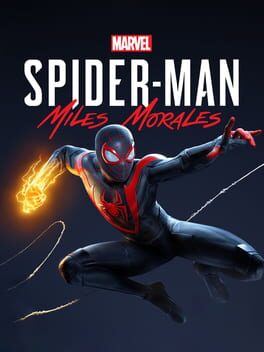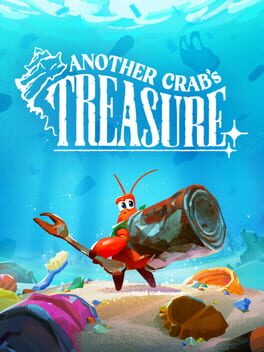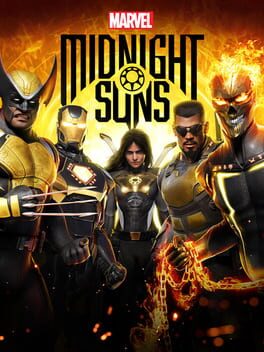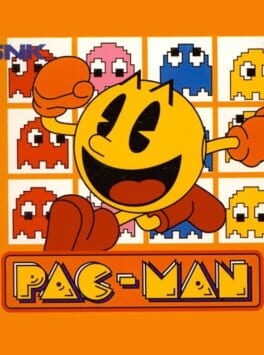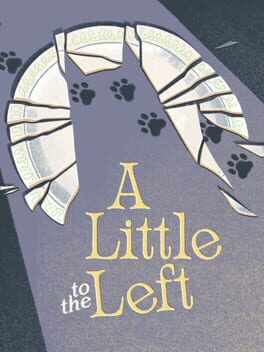Psientologist
322 Reviews liked by Psientologist
Stellar Blade
2024
I cannae believe so many folk are treating such an ok game as some big line in the culture war sand. If they took a few minutes away from signing petitions and replying to every Sony tweet with their hashtag, and actually bought the thing they'd see that no amount of skin can save this from being just very fine.
Flat shallow characters, messy predictable story, repetitive combat. This game has it all!
Fights are mostly just waiting for the enemy to do something so you can parry it and do a burst attack. There are combos, but you almost never get to do full ones because the enemy is starting its next swing and your only options are block, parry, or dodge. Good luck with that last one, because the dodge is dogshit. It's supposed to be for moving away from unblockable attacks, but the timing for it just feels off. This is made painfully worse when more than one enemy is targeting you, and your Souls instincts kick in looking for i-frames that aren't there.
Boss fights and music mostly rip though, so it has that going for it.
The characters however are like interacting with cardboard. Everyone is so basic. They're saying words that sound important, but there's so little there beneath it in both the acting or body language. Adam has to be the worst of these. The man feels like a placeholder model and voice through the whole game. It's wild that's he's one of the main cast. They're all desperately trying to get you to care about a story that feels vague, but by accident. Not some kind of "Oh the secrets are being kept from you" thing, but like they forgot to give us necessary info because they know it all since they're the ones making the game. I burst out laughing at the end when some daft stuff happens and a character just goes "What are you talking about?" as this person walks away without saying anything. It's exactly how I felt in the moment.
I'm convinced this whole thing could have worked better as more of a boss rush with bits of story or travel in-between à la Furi. I didn't feel like I was connecting wih the people or what was going on when I was trekking across empty desert doing fetch quests where every one ends with finding a corpse with an attached dying message. It's a poor man's Nier Automata, and that doesn't do it any favours in a world where I've come to resent a game I loved because it's done cross-overs with fucking everything and I'm sick of seeing 2B. THEY MADE ME SICK OF SEEING A NICE BIG ARSE!
Flat shallow characters, messy predictable story, repetitive combat. This game has it all!
Fights are mostly just waiting for the enemy to do something so you can parry it and do a burst attack. There are combos, but you almost never get to do full ones because the enemy is starting its next swing and your only options are block, parry, or dodge. Good luck with that last one, because the dodge is dogshit. It's supposed to be for moving away from unblockable attacks, but the timing for it just feels off. This is made painfully worse when more than one enemy is targeting you, and your Souls instincts kick in looking for i-frames that aren't there.
Boss fights and music mostly rip though, so it has that going for it.
The characters however are like interacting with cardboard. Everyone is so basic. They're saying words that sound important, but there's so little there beneath it in both the acting or body language. Adam has to be the worst of these. The man feels like a placeholder model and voice through the whole game. It's wild that's he's one of the main cast. They're all desperately trying to get you to care about a story that feels vague, but by accident. Not some kind of "Oh the secrets are being kept from you" thing, but like they forgot to give us necessary info because they know it all since they're the ones making the game. I burst out laughing at the end when some daft stuff happens and a character just goes "What are you talking about?" as this person walks away without saying anything. It's exactly how I felt in the moment.
I'm convinced this whole thing could have worked better as more of a boss rush with bits of story or travel in-between à la Furi. I didn't feel like I was connecting wih the people or what was going on when I was trekking across empty desert doing fetch quests where every one ends with finding a corpse with an attached dying message. It's a poor man's Nier Automata, and that doesn't do it any favours in a world where I've come to resent a game I loved because it's done cross-overs with fucking everything and I'm sick of seeing 2B. THEY MADE ME SICK OF SEEING A NICE BIG ARSE!
Children of the Sun
2024
Lil Gator Game
2022
Lil Gator Game reminds me a lot of A Short Hike in the same way that Haven Park does, but unlike Haven Park, it's much easier to maintain a free-spirited flow state in a way that the former really captured and the latter somewhat lacked, lending Lil Gator Game a much stronger sense of identity. Translating the climbing stamina mechanics from the isometric perspective of A Short Hike to the 3rd person 3D perspective of Lil Gator Game (basically that of Breath of the Wild) does wonders for how quickly you can just jump and climb about. Factor in t-shirt gliding, "shield" sledding (which allows you to skim on the water like a jetski), and the ability to chain all of this together through constant jumps while sledding to build up speed, and you've got some pretty sick movement potential, even if you don't necessarily need it.
I think that's the strength that this game best exemplifies; there's tons of ways to get going and zip around the two islands for the kicks, but you can absolutely take the odyssey at your own pace and just soak in your surroundings too, since there's no fail-state from falling too far or discomfort from ever getting lost. It's a several hour nostalgia trip with tons of environmental interactivity that's quite literally a living make-believe playground, with tons of random hats, swords, shields, and various toys like a bubble gum balloon or a sticky hand to roleplay Spider Gator to mess around with on a whim. They even give you a texting tool to find the remaining cardboard monsters to go slashy slashy upon and the megaphone to shout out to find your remaining buddies if you're that kind of individual that wants to do everything there is to see. It never tries to take itself too seriously either; the whole gang's here for the dumb adventure tropes and genuinely wants to be your friend. It's such a simple yet realized take upon an indie classic, but absolutely worthwhile dipping into just to remember that sometimes, it's okay to forget about life for a while and pretend to be a kid again.
Oh, and the Ninja Headband accessory actually does make your character move faster thanks to the Naruto run. It's okay though; no one's going to judge you in Lil Gator Game. Now, time to climb some more peaks and ragdoll terminal velocity splat one more time before dinner.
I think that's the strength that this game best exemplifies; there's tons of ways to get going and zip around the two islands for the kicks, but you can absolutely take the odyssey at your own pace and just soak in your surroundings too, since there's no fail-state from falling too far or discomfort from ever getting lost. It's a several hour nostalgia trip with tons of environmental interactivity that's quite literally a living make-believe playground, with tons of random hats, swords, shields, and various toys like a bubble gum balloon or a sticky hand to roleplay Spider Gator to mess around with on a whim. They even give you a texting tool to find the remaining cardboard monsters to go slashy slashy upon and the megaphone to shout out to find your remaining buddies if you're that kind of individual that wants to do everything there is to see. It never tries to take itself too seriously either; the whole gang's here for the dumb adventure tropes and genuinely wants to be your friend. It's such a simple yet realized take upon an indie classic, but absolutely worthwhile dipping into just to remember that sometimes, it's okay to forget about life for a while and pretend to be a kid again.
Oh, and the Ninja Headband accessory actually does make your character move faster thanks to the Naruto run. It's okay though; no one's going to judge you in Lil Gator Game. Now, time to climb some more peaks and ragdoll terminal velocity splat one more time before dinner.
Sonic the Hedgehog
1991
It's wild that the icon of speed was tied to the posterchild for poor 50Hz optimisation, and yet, in 1991, Europe still loved him. Wherever you bought your copy of Sonic 1, the ROM was the same, and European Mega Drives were not built to play that shit. Regardless, PAL Sonic 1 has a daydreamy quality that I remain attached to. It makes the surrealness stand out more. The weird geometry and scrolling Special Stage birds that turn to fish. The slower pace means there's more opportunity for your attention towards drift to the backgrounds, and why are there prison bars all over Marble Zone's underground? The technical showcase aspect of it all was lost on me as a 5 year-old, but paired with all the old hippies who were animating sequences on the episodes of Sesame Street I'd watch daily, I was skipping past taking interest in the wonders of the world around me, and jumping headfirst into a fascination with the psychedelic. Don't cry for us, America. To you, it was just a bit of fun, but for us, Mobius was a dream. No wonder so much of the world's poetry comes from Europe. It's a real bummer that when Sonic transitioned to 3D, Sega's big question was "what if he lived in a city with people and a public transit system?"
Sonic 1 is a gorgeous game, and Naoto Oshima has a real skill for character design. Games had attempted to be this vibrant and dense with colour before, but when they were, they were likely the most rancid Amiga games ever made. Before Sonic, the Mega Drive was selling itself on the cutting-edge visuals of Castle of Illusion, which looks about a generation behind this. Everything was defined by the dimensions of the sprite tiles. Sonic's world is full of slopes, twisting tunnels and crumbling rock, and it all had a direct effect on your movement. Sure, Mario 3 let you slide on your arse, but in Sonic, every angle of geometry had an impact. It had taken a couple of years to convince weary customers that the jump to 16-bit actually meant anything, but after Sonic, there was no doubt.
I think a big factor that puts off older players who didn't grow up with Sonic is that it's neither strict enough to demand skilful play, nor easy enough to not constantly bump into dead ends and enemies. That ring system is a double-edged sword. Unlike the more respected Shinobis and Dynamite Headdys, you can get through it, but first-timers are just going to have a really sloppy run. For young players, who could never complete a game before, it was a godsend. We learned every curve of land and every terrible spikepit off by heart, and when we play it now, we're all incredible at the game. We're not confounded by springs that send you shooting into traps, or the giant Scrap Brain sawblades. When we play, it's with that intended sense of attitude. I think my later affinity for skateboarding games can be traced back to Sonic, with its momentum-based movement and giant halfpipes. There wasn't really anything that played like that in the early 3D days until THPS came along.
Sonic 1 instantly became the boring one when it started to get sequels, but I think it retains the strongest sense of atmosphere. It's the artsiest game in the series, with its far-out influences and only the sparsest interest in worldbuilding. It really doesn't hold much resemblance to the hideous multimedia juggernaut that the franchise has become. Sonic's a breezy little game that you can get through in around an hour, and it remains a lovely experience. Just make sure to leave yourself 12.5% longer if you're playing on a European machine.
Sonic 1 is a gorgeous game, and Naoto Oshima has a real skill for character design. Games had attempted to be this vibrant and dense with colour before, but when they were, they were likely the most rancid Amiga games ever made. Before Sonic, the Mega Drive was selling itself on the cutting-edge visuals of Castle of Illusion, which looks about a generation behind this. Everything was defined by the dimensions of the sprite tiles. Sonic's world is full of slopes, twisting tunnels and crumbling rock, and it all had a direct effect on your movement. Sure, Mario 3 let you slide on your arse, but in Sonic, every angle of geometry had an impact. It had taken a couple of years to convince weary customers that the jump to 16-bit actually meant anything, but after Sonic, there was no doubt.
I think a big factor that puts off older players who didn't grow up with Sonic is that it's neither strict enough to demand skilful play, nor easy enough to not constantly bump into dead ends and enemies. That ring system is a double-edged sword. Unlike the more respected Shinobis and Dynamite Headdys, you can get through it, but first-timers are just going to have a really sloppy run. For young players, who could never complete a game before, it was a godsend. We learned every curve of land and every terrible spikepit off by heart, and when we play it now, we're all incredible at the game. We're not confounded by springs that send you shooting into traps, or the giant Scrap Brain sawblades. When we play, it's with that intended sense of attitude. I think my later affinity for skateboarding games can be traced back to Sonic, with its momentum-based movement and giant halfpipes. There wasn't really anything that played like that in the early 3D days until THPS came along.
Sonic 1 instantly became the boring one when it started to get sequels, but I think it retains the strongest sense of atmosphere. It's the artsiest game in the series, with its far-out influences and only the sparsest interest in worldbuilding. It really doesn't hold much resemblance to the hideous multimedia juggernaut that the franchise has become. Sonic's a breezy little game that you can get through in around an hour, and it remains a lovely experience. Just make sure to leave yourself 12.5% longer if you're playing on a European machine.
God Hand
2006
"Character action" has never done it for me. I feel the floaty combos and distant cameras really dampen the impact of combat. I'm so glad that we live in the timeline where instead of representing the future of the Resident Evil series, Devil May Cry became its own franchise. Resident Evil 4 was a game that Capcom attempted to make several times, before begging Mikami to come back to the director's seat, and even he scrapped a couple of false starts before he settled on the game he ought to be making. The change in camera was the big thing that players talked about, but it was the shift in focus and tone that really made Resi 4 so beloved by its biggest fans. Mikami had gained skill, establishing multiple complementary mechanics and tying that to a campaign, but he was also more confident in his own sense of humour and whimsy. Resi 4 was a game with a real sense of personality, but it was compromised by the pressures of the surrounding franchise, the publisher and the fanbase. For his next game, he'd disregard all these aspects and make it entirely for himself.
When I first played God Hand, it took about five seconds before I knew I loved it. It's very much built on the back of Resi 4, but makes no apologies for its eccentricities. It takes the weight and impact of Resident Evil 4's shotgun and puts that behind each punch. Resi 4 utilised the sensibilities of modern games just enough to adopt a mostly useless camera manipulation system to the right analogue stick, but God Hand foregoes those conventions entirely, tethering it to your critical dodge system. God Hand doesn't care about any other game. It's fully confident in what it's doing.
God Hand's vibe is a very divisive thing, and not something you can choose to opt out of, but a truly cultured mind will undoubtedly side with it. Its sense of humour comes from a very specific place. It's a deep affection for Fist of the North Star and low-budget 70s kung fu films, but there's so much fondness for late-80s and early-90s action games, too. It loves the ridiculous, digitised voice clips from Altered Beast and Final Fight. The greatest joy is when you encounter an absurd, one-off, late-game disco miniboss, and he hits you with the same audio clips as the standard grunts from Level 1. This is a game full of explosive barrels and giant fruit. Shinji Mikami started production on Resident Evil 4 trying to fulfil the obligation to make his scariest game ever, and by the end, he got so bored with that direction that he created a giant stone robot Salazar that chased you through brick walls. God Hand was the logical next step for him.
There's a focus to God Hand's ambitions that implies Clover really knew what they had with it. A few ridiculous bosses and minigames notwithstanding, the levels are typically fairly boxy and nondescript. All the attention is on the distribution of enemies and items. It's spectacularly un-fancy. Flat ground and big brick walls that disappear when the camera gets too close to them. It doesn't care. The fighting feels great, and we're having a great time with all these stupid baddies. Fuck everything else.
Your moveset is fully customisable. Between levels, you're given the opportunity to buy new moves, and apply them to your controls, either as specials tethered to a specific button combination, or even as part of the standard combo you get while mashing the square button. It offers players real versatility as they figure out their preferred playstyles, and what works for them, while trying something less intuitive can open you up to new approaches. There are quick kicks and punches that overwhelm opponents, heavy-damage moves that take longer to pull off, guard breaks, and long-range attacks that can help with crowd control. There are certain moves and dodges that are highly exploitable, and risk breaking the game's balance. Clover are aware of this though, and whenever they found a strategy that made the game boring, they made sure to penalise you for using it by boosting the difficulty massively whenever you try it.
That's the big feature. The difficulty. God Hand starts out really hard, and when the game registers that you've dodged too many attacks or landed too many successive hits, it gets harder. This was a secret system in Resi 4, but in God Hand, it's part of your on-screen HUD, always letting you know when you've raised or lowered a difficulty level. Enemies hit harder, health pick-ups drop less frequently, and attacks become harder to land. The game's constantly drawing you to the edge of your abilities, and if you die, you have to try the entire section again from the start. It never feels too dispiriting, though. You retain all cash you've picked up after you died, and you feel encouraged by a drop in difficulty. If you do well enough on your next attempt, it won't take long before the difficulty gets back to where it was. There's also some fun surprises for those who get good enough to maintain a Level 3 or Level Die streak for long enough, with some special enemy spawns and stuff. You feel rewarded for getting good, but never patronised or pandered to. Your reward is a game that felt as thrilling as it did when you first tried it.
It's the little eccentricities in God Hand's design that I really admire. Pick up a barrel and Gene will instantly shift his direction to the nearest enemy, eliminating any extraneous aiming bullshit, and pushing your attention towards the opportunity for some cheap long-distance damage. If an item spawns, it remains there until you pick it up, giving you the opportunity to save it for when you really need it, even if the backtracking route becomes a little ridiculous. Since the camera is so stubbornly committed to viewing Gene's back, they've implemented a radar system to keep track of surrounding enemies, and it makes little sense in the context of the scenario, but the game doesn't care about that stuff. It's another thing that makes the fights against gorillas and rock stars more fun, so run with it. Between each section of the game, you're given the opportunity to save, or warp to a kind of mid-game hub world, with a shop, training area and casino, which you can use to unlock better moves and upgrades when you need them most. You can gain money by taking the honest route and chipping away at its toughest challenges, or take the less honourable route with slot machines and gambling on poison chihuahua races. It's blunt, utilitarian, and it's entirely complementary to the way God Hand feels to play.
It's the consistency in tone and intention that completes the package. God Hand knows what it is, and how it feels, and it never betrays that. It doesn't obsess over lore or characters, but it really has fun in introducing new baddies and scenarios to put you in. And I really like its taste. I like that all the big bosses meet up at a secret hell table to exchange barbs between levels. I like the fight on an enormous Venetian gondola. I like the dumb, weird, repetitive soundtrack. The developers are world-class talents, and they just wanted to make a dumb, stupid, fun game.
I probably ought to give the soundtrack a little more credit. This is from Masafumi Takada, out on loan from Grasshopper Manufacture before he became a real gun for hire, working on Vanquish, Kid Icarus: Uprising, Danganronpa and Smash Bros Ultimate. He's great at elaborate, high-energy compositions, but his work on God Hand is some of his dumbest stuff. It's great. The constant Miami 5-0 surf rock, the warbling Elvis boss fight music, and the Flight of the Bumblebee guitar for the fight against a giant fly. He's having the time of his life on this one, fully liberated from the pressures to convey a consistent tone or atmosphere. It's stunning work, and he makes the correct call every time he has to write a new piece of BGM for God Hand.
Shinij Mikami is a bit of an enigma, and his work on Resident Evil has unfortunately typecast him as a horror director, but he's never expressed a real affinity for the genre. He was put into that position under an obligation to Ghouls 'n Ghosts' Tokuro Fujiwara, and the game he ended up making was full of corny heroes and giant snakes. The subject matter was a shock to audiences in the mid-nineties, but in reality, it wasn't that far removed from his work on SNES Aladdin. By my estimation, God Hand's the closest we've come to seeing the real Mikami through his work. He's made Resident Evil 4, and he wants to leave that behind him, but EA and ZeniMax kept dragging him back to his biggest hit.
God Hand feels like the only point in history God Hand could have happened, and it's pretty wild that it did in the first place. I mean, it makes sense that once you hand Capcom the Resi 4 Gold Master disc, they'll let you do whatever you want, but they were so rattled by the result that they fired all of their key talent and started making calls to Canada to produce Dead Rising 2. Confidence in Japanese development was at an all-time low after 2006, and the PS3 and Xbox 360 resulted in some of the most embarrassing entries in many legacy franchises. The PlayStation was born out of a SNES project, and that ethos was what drove the first decade of Sony Computer Entertainment. Afterwards, a new game proposal would not be greenlit without referencing the design of the latest Grand Theft Auto. The Konami, Namco, Square and Capcom that we have today don't reflect who they were in the nineties and early 2000s. To me, God Hand feels like the final page of that chapter. But, man, what a fucking statement to close out on.
When I first played God Hand, it took about five seconds before I knew I loved it. It's very much built on the back of Resi 4, but makes no apologies for its eccentricities. It takes the weight and impact of Resident Evil 4's shotgun and puts that behind each punch. Resi 4 utilised the sensibilities of modern games just enough to adopt a mostly useless camera manipulation system to the right analogue stick, but God Hand foregoes those conventions entirely, tethering it to your critical dodge system. God Hand doesn't care about any other game. It's fully confident in what it's doing.
God Hand's vibe is a very divisive thing, and not something you can choose to opt out of, but a truly cultured mind will undoubtedly side with it. Its sense of humour comes from a very specific place. It's a deep affection for Fist of the North Star and low-budget 70s kung fu films, but there's so much fondness for late-80s and early-90s action games, too. It loves the ridiculous, digitised voice clips from Altered Beast and Final Fight. The greatest joy is when you encounter an absurd, one-off, late-game disco miniboss, and he hits you with the same audio clips as the standard grunts from Level 1. This is a game full of explosive barrels and giant fruit. Shinji Mikami started production on Resident Evil 4 trying to fulfil the obligation to make his scariest game ever, and by the end, he got so bored with that direction that he created a giant stone robot Salazar that chased you through brick walls. God Hand was the logical next step for him.
There's a focus to God Hand's ambitions that implies Clover really knew what they had with it. A few ridiculous bosses and minigames notwithstanding, the levels are typically fairly boxy and nondescript. All the attention is on the distribution of enemies and items. It's spectacularly un-fancy. Flat ground and big brick walls that disappear when the camera gets too close to them. It doesn't care. The fighting feels great, and we're having a great time with all these stupid baddies. Fuck everything else.
Your moveset is fully customisable. Between levels, you're given the opportunity to buy new moves, and apply them to your controls, either as specials tethered to a specific button combination, or even as part of the standard combo you get while mashing the square button. It offers players real versatility as they figure out their preferred playstyles, and what works for them, while trying something less intuitive can open you up to new approaches. There are quick kicks and punches that overwhelm opponents, heavy-damage moves that take longer to pull off, guard breaks, and long-range attacks that can help with crowd control. There are certain moves and dodges that are highly exploitable, and risk breaking the game's balance. Clover are aware of this though, and whenever they found a strategy that made the game boring, they made sure to penalise you for using it by boosting the difficulty massively whenever you try it.
That's the big feature. The difficulty. God Hand starts out really hard, and when the game registers that you've dodged too many attacks or landed too many successive hits, it gets harder. This was a secret system in Resi 4, but in God Hand, it's part of your on-screen HUD, always letting you know when you've raised or lowered a difficulty level. Enemies hit harder, health pick-ups drop less frequently, and attacks become harder to land. The game's constantly drawing you to the edge of your abilities, and if you die, you have to try the entire section again from the start. It never feels too dispiriting, though. You retain all cash you've picked up after you died, and you feel encouraged by a drop in difficulty. If you do well enough on your next attempt, it won't take long before the difficulty gets back to where it was. There's also some fun surprises for those who get good enough to maintain a Level 3 or Level Die streak for long enough, with some special enemy spawns and stuff. You feel rewarded for getting good, but never patronised or pandered to. Your reward is a game that felt as thrilling as it did when you first tried it.
It's the little eccentricities in God Hand's design that I really admire. Pick up a barrel and Gene will instantly shift his direction to the nearest enemy, eliminating any extraneous aiming bullshit, and pushing your attention towards the opportunity for some cheap long-distance damage. If an item spawns, it remains there until you pick it up, giving you the opportunity to save it for when you really need it, even if the backtracking route becomes a little ridiculous. Since the camera is so stubbornly committed to viewing Gene's back, they've implemented a radar system to keep track of surrounding enemies, and it makes little sense in the context of the scenario, but the game doesn't care about that stuff. It's another thing that makes the fights against gorillas and rock stars more fun, so run with it. Between each section of the game, you're given the opportunity to save, or warp to a kind of mid-game hub world, with a shop, training area and casino, which you can use to unlock better moves and upgrades when you need them most. You can gain money by taking the honest route and chipping away at its toughest challenges, or take the less honourable route with slot machines and gambling on poison chihuahua races. It's blunt, utilitarian, and it's entirely complementary to the way God Hand feels to play.
It's the consistency in tone and intention that completes the package. God Hand knows what it is, and how it feels, and it never betrays that. It doesn't obsess over lore or characters, but it really has fun in introducing new baddies and scenarios to put you in. And I really like its taste. I like that all the big bosses meet up at a secret hell table to exchange barbs between levels. I like the fight on an enormous Venetian gondola. I like the dumb, weird, repetitive soundtrack. The developers are world-class talents, and they just wanted to make a dumb, stupid, fun game.
I probably ought to give the soundtrack a little more credit. This is from Masafumi Takada, out on loan from Grasshopper Manufacture before he became a real gun for hire, working on Vanquish, Kid Icarus: Uprising, Danganronpa and Smash Bros Ultimate. He's great at elaborate, high-energy compositions, but his work on God Hand is some of his dumbest stuff. It's great. The constant Miami 5-0 surf rock, the warbling Elvis boss fight music, and the Flight of the Bumblebee guitar for the fight against a giant fly. He's having the time of his life on this one, fully liberated from the pressures to convey a consistent tone or atmosphere. It's stunning work, and he makes the correct call every time he has to write a new piece of BGM for God Hand.
Shinij Mikami is a bit of an enigma, and his work on Resident Evil has unfortunately typecast him as a horror director, but he's never expressed a real affinity for the genre. He was put into that position under an obligation to Ghouls 'n Ghosts' Tokuro Fujiwara, and the game he ended up making was full of corny heroes and giant snakes. The subject matter was a shock to audiences in the mid-nineties, but in reality, it wasn't that far removed from his work on SNES Aladdin. By my estimation, God Hand's the closest we've come to seeing the real Mikami through his work. He's made Resident Evil 4, and he wants to leave that behind him, but EA and ZeniMax kept dragging him back to his biggest hit.
God Hand feels like the only point in history God Hand could have happened, and it's pretty wild that it did in the first place. I mean, it makes sense that once you hand Capcom the Resi 4 Gold Master disc, they'll let you do whatever you want, but they were so rattled by the result that they fired all of their key talent and started making calls to Canada to produce Dead Rising 2. Confidence in Japanese development was at an all-time low after 2006, and the PS3 and Xbox 360 resulted in some of the most embarrassing entries in many legacy franchises. The PlayStation was born out of a SNES project, and that ethos was what drove the first decade of Sony Computer Entertainment. Afterwards, a new game proposal would not be greenlit without referencing the design of the latest Grand Theft Auto. The Konami, Namco, Square and Capcom that we have today don't reflect who they were in the nineties and early 2000s. To me, God Hand feels like the final page of that chapter. But, man, what a fucking statement to close out on.
Doronko Wanko
2024
This was my first Insomniac Spider-Man, and it was a little overwhelming at first as it definitely assumes familiarity with the first game despite being a standalone release.
Personally fine with it being a shorter game, as I think I'd get bored if it lasted much longer and it's open world didn't seem to offer much variety to make me want to dig into it's content. Obviously, the main appeal is its traversal which is fun but because it’s so simple It’s a bit shallow.
You can see the inspiration from the Arkham games in the combat, but I find it strange how much the game pushes you towards stealth, because I don’t think it’s as much fun as the venom combat and the game seems to punish you not using stealth even if it’s not essential.
The little puzzle sections I generally wasn’t in love with, they often felt a bit unintuitive over what your goal is.
Ultimately, I’m not really the Sony AAA cinematic/open world guy. So, I knew going in a lot of these things would be issues to me and the story wouldn’t be very engaging as I’m not a Spider-Man guy. But I still got a fair amount of enjoyment out of my time with this, as a sort of free if you have PS Plus game, so I don’t regret playing it.
Personally fine with it being a shorter game, as I think I'd get bored if it lasted much longer and it's open world didn't seem to offer much variety to make me want to dig into it's content. Obviously, the main appeal is its traversal which is fun but because it’s so simple It’s a bit shallow.
You can see the inspiration from the Arkham games in the combat, but I find it strange how much the game pushes you towards stealth, because I don’t think it’s as much fun as the venom combat and the game seems to punish you not using stealth even if it’s not essential.
The little puzzle sections I generally wasn’t in love with, they often felt a bit unintuitive over what your goal is.
Ultimately, I’m not really the Sony AAA cinematic/open world guy. So, I knew going in a lot of these things would be issues to me and the story wouldn’t be very engaging as I’m not a Spider-Man guy. But I still got a fair amount of enjoyment out of my time with this, as a sort of free if you have PS Plus game, so I don’t regret playing it.
Doronko Wanko
2024
There's a small chance I may come back to this one day as I did genuinely enjoy the turn based combat and I really wish it was mainly just going from battle to battle with some upgrading characters in between. But the time spent in the Abbey was just too long and boring for it to put me off pursuing with the game.
Astro's Playroom
2020
Despite owning a PS5 for nearly 2 years now, I have only just got around to playing this game packed in the console. I had always heard how great it was and how it was still the best example of utilising the features of the PS5 controller. I'm glad I finally got around to it as it really was a delight to play. The stuff it does with the controller really is wonderful and definitely the best use of it I've experienced. Even ignoring that, it's a good 3D platformer in its own right. Furthermore there is all the nostalgia you get from unlocking various bits and pieces of random tech from PlayStations history and then saying the other Astrobots performing scenes from classic PlayStation games. The only thing I can criticise about it was that there was some very frustrating motion control bits with a rocket ship and the monkey climbing was also very annoying. But overall it was a great time and I hope Team Asobi get chance to make a fully fledged game in the future.
Pac-Man
1999
I recently purchased a "pack" of Oreo X PAC-MAN Limited Edition biscuits, and felt a tinge of impostor syndrome. Am I really a big enough Pac-Fan to eat these? I mean, sure, I can accurately identify Inky, Pinky, Blinky and Clyde no problem, and I know all the words to Buckner & Garcia's "Pac-Man Fever" off by heart - a song that rips the songwriting traditions of the blues out of the Mississippi Delta and righteously appropriates them to discuss the real hardships (being a gamer) - but I don't really rate Pac-Man as one of my favourite Namco games. It's almost a little too elemental. Too primal. It's a chase game, and that clearly had influence on personal favourites like Dig Dug and Metal Gear, but it doesn't have any of that Dig Dug or Metal Gear stuff that I like in it, either.
I can't decide whether releasing Pac-Man as a standalone Neo Geo Pocket Color game in 1999 was an act of extraordinary hubris, or an earned confidence. I mean, Super Mario Bros. Deluxe on the Game Boy Color was one thing, but this is fucking Pac-Man. No new modes or anything. Pac-Man. One step up from fucking Pong. Maybe if you're younger, all these 20th century years seem to blend together in a big "I don't care" grey area, but we were playing Quake III online by then (or at least, we'd heard someone's big brother did it once, but he had to get off the internet after one match because it was costing a fortune on the phone bill). Seeing this on the shelf below the Game Boys and Pokémon instantly lost all credibility SNK may have hoped to have gained with the under-20s crowd. In the 90's, "retro" was incredibly niche. Like, I was aware of the Street Fighter and Bubble Bobble collections on PS1, but when I imagined someone buying them, they were like studious historians, analysing the software like it had just been dug out of a pharaoh's tomb. These things weren't conceivable as "entertainment" for "people". Who the fuck bought this at launch?
Now, I am that decrepit auld bastard. NGPC Pac-Man is cool. A little obnoxiously so, actually. It kind of predicted the retro boom that would start to take hold in the following decade. Pac-Man is a gaming icon. Literally. He's probably the little button you press on your phone screen to get the emulators on. It's difficult to view him objectively as The Packing Man, unencumbered by the decades of cultural impact that followed, but having a little one-and-done cartridge like this helps.
NGPC Pac-Man's big feature is a little rubber ring that comes in the box. You attach it to the NGPC's microswitch stick and it blocks off the diagonal directions. It's actually really effective, and makes the game feel much snappier, as you're locked to 90 degree turns. SNK are an arcade developer, first and foremost, and their approach in designing a two-button handheld is actually really cute. I think if you're happy to go along with that, and not moan about how naive it is to use this strategy to compete with the Game Boy Color, it's super cool that they put Pac-Man on here. And they set aside some of the budget to manufacture a little piece of rubber to make it as satisfying as it ought to be.
Pac-Man is fun. It's immediately speedy. You don't even press a button, and you shoot right out of the gate. All you can do is steer, avoiding the ghosts, attempting to squeeze into a corner of the map that still has power pellets on it, and seeing if you can keep dodging the baddies long enough to clear the board. Each ghost has their own characteristic, and theoretically, you should be able to use this to determine which direction they'll take at a crossing, but I've still to take the lesson of which one's "Speedy" and which one's "Pokey" to heart. Even ignorant of the specific attributes, it adds something to the game, to know that they're each subtly distinct, and it's a fun dynamic to have in the background, as you do your best to survive.
If you've played enough 80s arcade games, you'll know that Pac-Man can be done very wrong. Have you ever played Wizard of Wor? Fuck me, man. What a nightmare. Pac-Man was pioneering. Most games of the time were either about fighting, sport, or attempting to rip-off Star Wars as liberally as Lucasfilm's legal representation would allow. Pac-Man wasn't trying to be something else. It was proud to be a videogame, and it did something that could only really take the form of a videogame. It was praised for its original, non-violent concept (eating ghosts is not in violation of the Geneva Convention, apparently). It didn't assume anything of its audience. It opened up videogames to entirely new players. Anybody could play this. All the Nintendo oldguard see Pac-Man as the gold standard, and Miyamoto's even pulled the strings, buddying up with Namco bigwigs, to get his own four-player fangame bundled in with copies of R: Racing Evolution. Without a strong affinity for videogames, Keita Takahashi signed up with Namco because they made stuff like Pac-Man, and what other business was committing themselves to fun, novel ideas like that? We all benefit from Pac-Man's glow, and we ought to respect him.
Will you play it for more than five minutes? Probably not. But that's okay, too. We need little games like this.
I can't decide whether releasing Pac-Man as a standalone Neo Geo Pocket Color game in 1999 was an act of extraordinary hubris, or an earned confidence. I mean, Super Mario Bros. Deluxe on the Game Boy Color was one thing, but this is fucking Pac-Man. No new modes or anything. Pac-Man. One step up from fucking Pong. Maybe if you're younger, all these 20th century years seem to blend together in a big "I don't care" grey area, but we were playing Quake III online by then (or at least, we'd heard someone's big brother did it once, but he had to get off the internet after one match because it was costing a fortune on the phone bill). Seeing this on the shelf below the Game Boys and Pokémon instantly lost all credibility SNK may have hoped to have gained with the under-20s crowd. In the 90's, "retro" was incredibly niche. Like, I was aware of the Street Fighter and Bubble Bobble collections on PS1, but when I imagined someone buying them, they were like studious historians, analysing the software like it had just been dug out of a pharaoh's tomb. These things weren't conceivable as "entertainment" for "people". Who the fuck bought this at launch?
Now, I am that decrepit auld bastard. NGPC Pac-Man is cool. A little obnoxiously so, actually. It kind of predicted the retro boom that would start to take hold in the following decade. Pac-Man is a gaming icon. Literally. He's probably the little button you press on your phone screen to get the emulators on. It's difficult to view him objectively as The Packing Man, unencumbered by the decades of cultural impact that followed, but having a little one-and-done cartridge like this helps.
NGPC Pac-Man's big feature is a little rubber ring that comes in the box. You attach it to the NGPC's microswitch stick and it blocks off the diagonal directions. It's actually really effective, and makes the game feel much snappier, as you're locked to 90 degree turns. SNK are an arcade developer, first and foremost, and their approach in designing a two-button handheld is actually really cute. I think if you're happy to go along with that, and not moan about how naive it is to use this strategy to compete with the Game Boy Color, it's super cool that they put Pac-Man on here. And they set aside some of the budget to manufacture a little piece of rubber to make it as satisfying as it ought to be.
Pac-Man is fun. It's immediately speedy. You don't even press a button, and you shoot right out of the gate. All you can do is steer, avoiding the ghosts, attempting to squeeze into a corner of the map that still has power pellets on it, and seeing if you can keep dodging the baddies long enough to clear the board. Each ghost has their own characteristic, and theoretically, you should be able to use this to determine which direction they'll take at a crossing, but I've still to take the lesson of which one's "Speedy" and which one's "Pokey" to heart. Even ignorant of the specific attributes, it adds something to the game, to know that they're each subtly distinct, and it's a fun dynamic to have in the background, as you do your best to survive.
If you've played enough 80s arcade games, you'll know that Pac-Man can be done very wrong. Have you ever played Wizard of Wor? Fuck me, man. What a nightmare. Pac-Man was pioneering. Most games of the time were either about fighting, sport, or attempting to rip-off Star Wars as liberally as Lucasfilm's legal representation would allow. Pac-Man wasn't trying to be something else. It was proud to be a videogame, and it did something that could only really take the form of a videogame. It was praised for its original, non-violent concept (eating ghosts is not in violation of the Geneva Convention, apparently). It didn't assume anything of its audience. It opened up videogames to entirely new players. Anybody could play this. All the Nintendo oldguard see Pac-Man as the gold standard, and Miyamoto's even pulled the strings, buddying up with Namco bigwigs, to get his own four-player fangame bundled in with copies of R: Racing Evolution. Without a strong affinity for videogames, Keita Takahashi signed up with Namco because they made stuff like Pac-Man, and what other business was committing themselves to fun, novel ideas like that? We all benefit from Pac-Man's glow, and we ought to respect him.
Will you play it for more than five minutes? Probably not. But that's okay, too. We need little games like this.
A Little to the Left
2022
Markets itself as a cozy, zen organization game and is everything but. Some puzzles are extremely arbitrary to the point I found myself getting frustrated after having my answers get rejected without any indication whether I was close to the intended solution. The tips are terrible.
If you are looking for an actual relaxing game, steer clear of this one and go play Unpacking or Assemble With Care instead.
If you are looking for an actual relaxing game, steer clear of this one and go play Unpacking or Assemble With Care instead.
